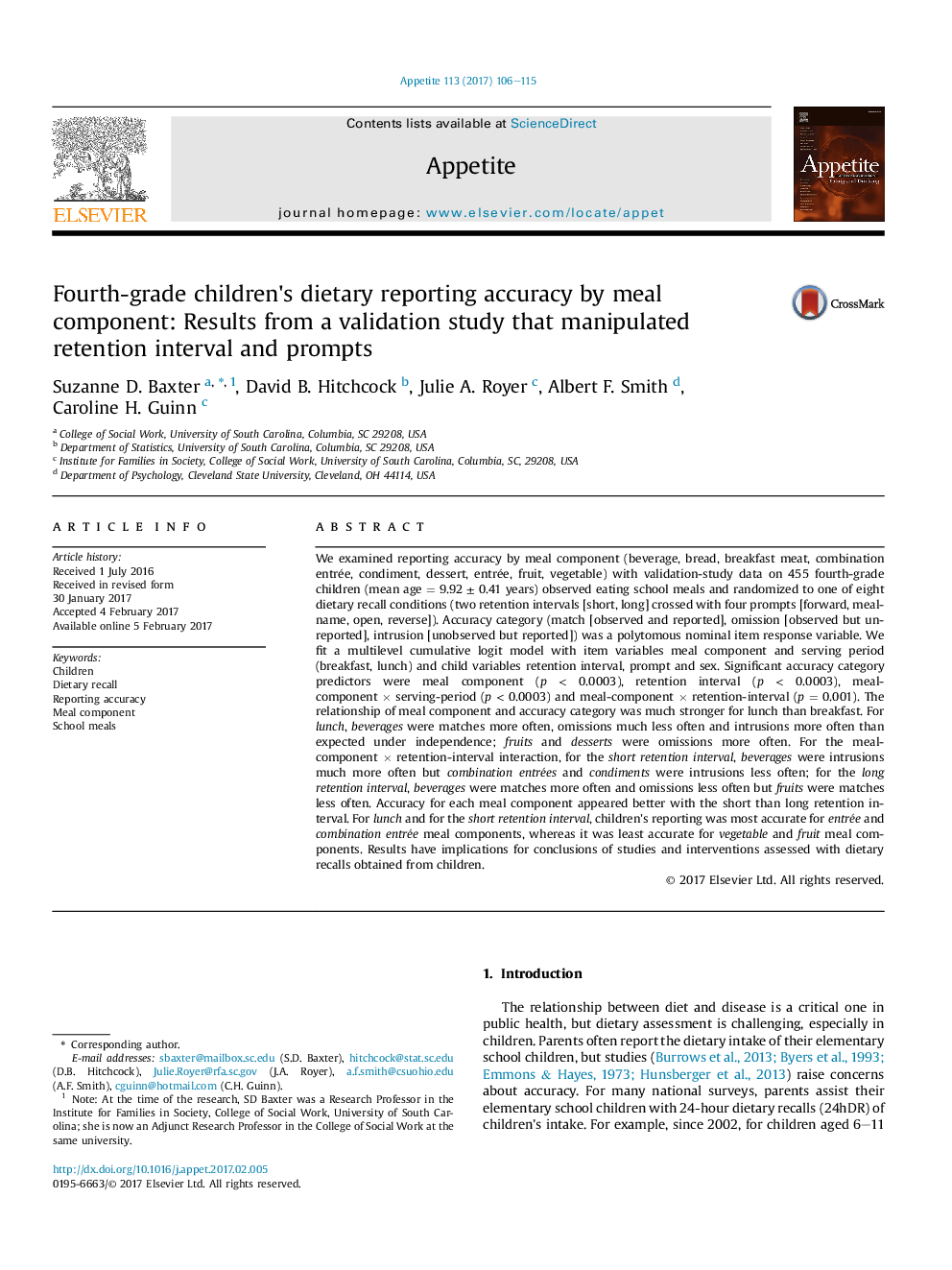| کد مقاله | کد نشریه | سال انتشار | مقاله انگلیسی | نسخه تمام متن |
|---|---|---|---|---|
| 5044168 | 1475367 | 2017 | 10 صفحه PDF | دانلود رایگان |
We examined reporting accuracy by meal component (beverage, bread, breakfast meat, combination entrée, condiment, dessert, entrée, fruit, vegetable) with validation-study data on 455 fourth-grade children (mean age = 9.92 ± 0.41 years) observed eating school meals and randomized to one of eight dietary recall conditions (two retention intervals [short, long] crossed with four prompts [forward, meal-name, open, reverse]). Accuracy category (match [observed and reported], omission [observed but unreported], intrusion [unobserved but reported]) was a polytomous nominal item response variable. We fit a multilevel cumulative logit model with item variables meal component and serving period (breakfast, lunch) and child variables retention interval, prompt and sex. Significant accuracy category predictors were meal component (p < 0.0003), retention interval (p < 0.0003), meal-component Ã serving-period (p < 0.0003) and meal-component Ã retention-interval (p = 0.001). The relationship of meal component and accuracy category was much stronger for lunch than breakfast. For lunch, beverages were matches more often, omissions much less often and intrusions more often than expected under independence; fruits and desserts were omissions more often. For the meal-component Ã retention-interval interaction, for the short retention interval, beverages were intrusions much more often but combination entrées and condiments were intrusions less often; for the long retention interval, beverages were matches more often and omissions less often but fruits were matches less often. Accuracy for each meal component appeared better with the short than long retention interval. For lunch and for the short retention interval, children's reporting was most accurate for entrée and combination entrée meal components, whereas it was least accurate for vegetable and fruit meal components. Results have implications for conclusions of studies and interventions assessed with dietary recalls obtained from children.
Journal: Appetite - Volume 113, 1 June 2017, Pages 106-115
